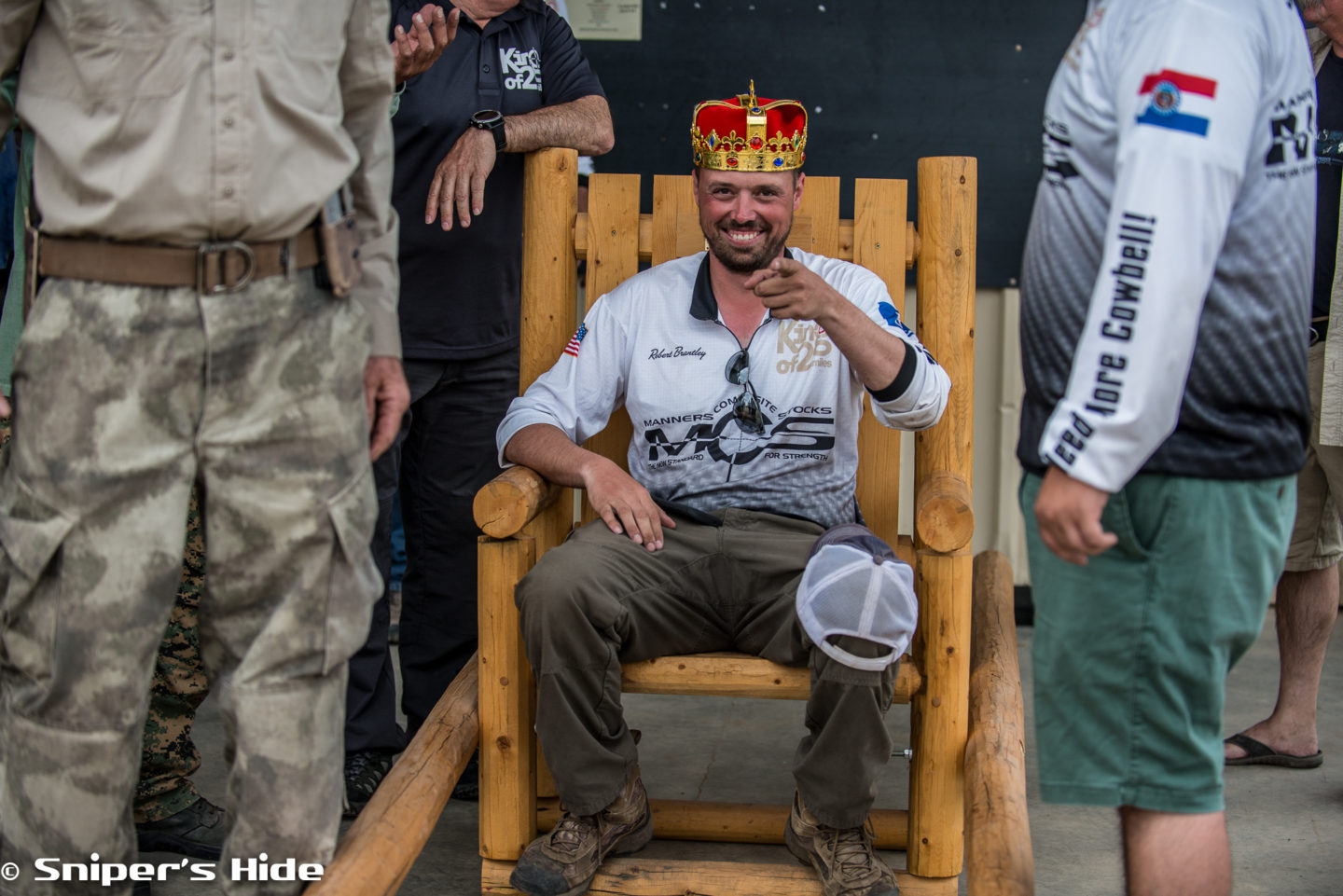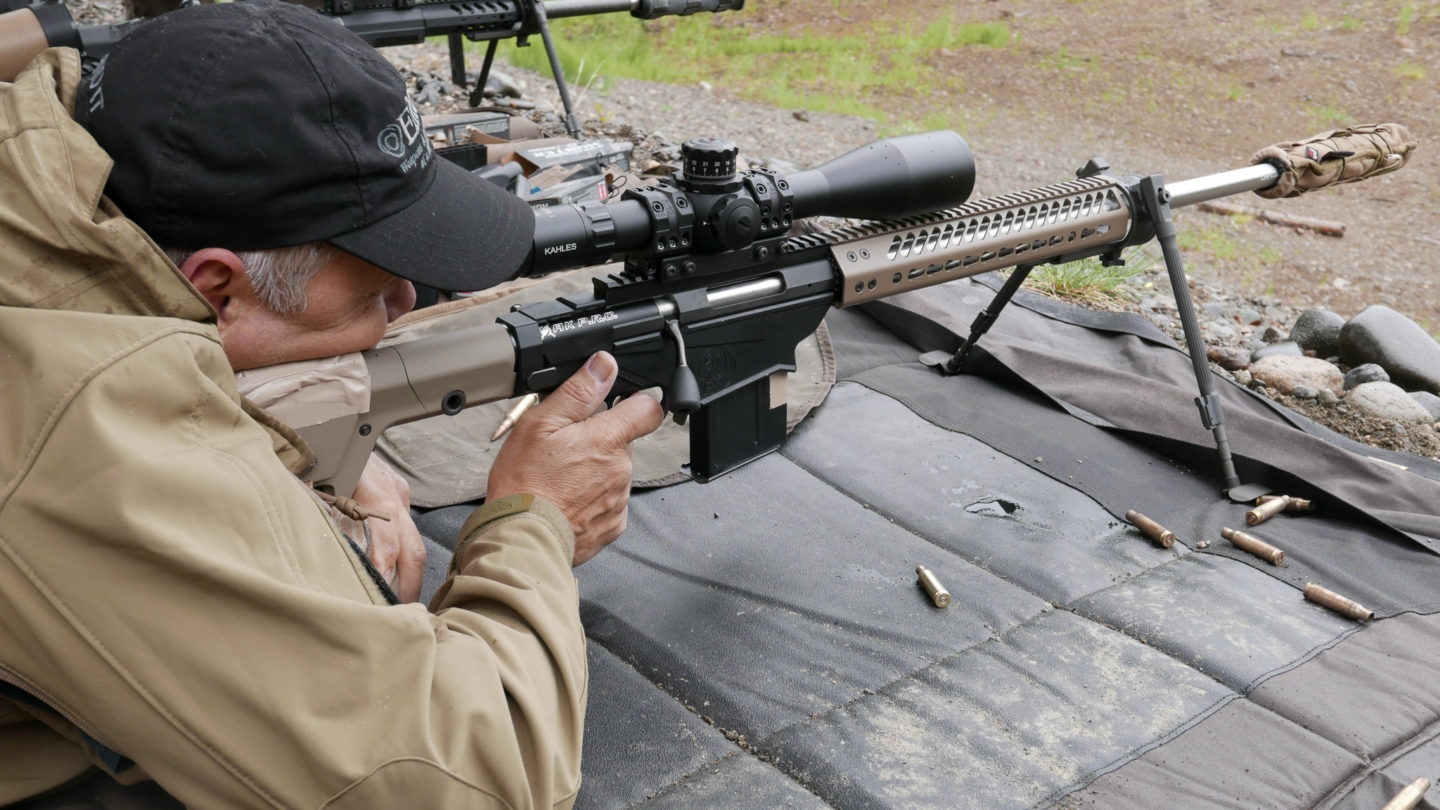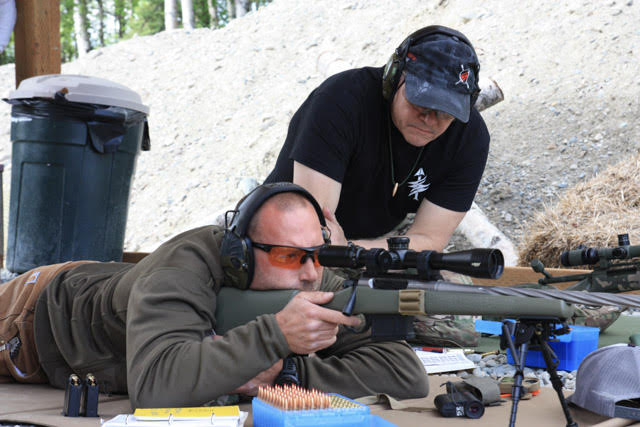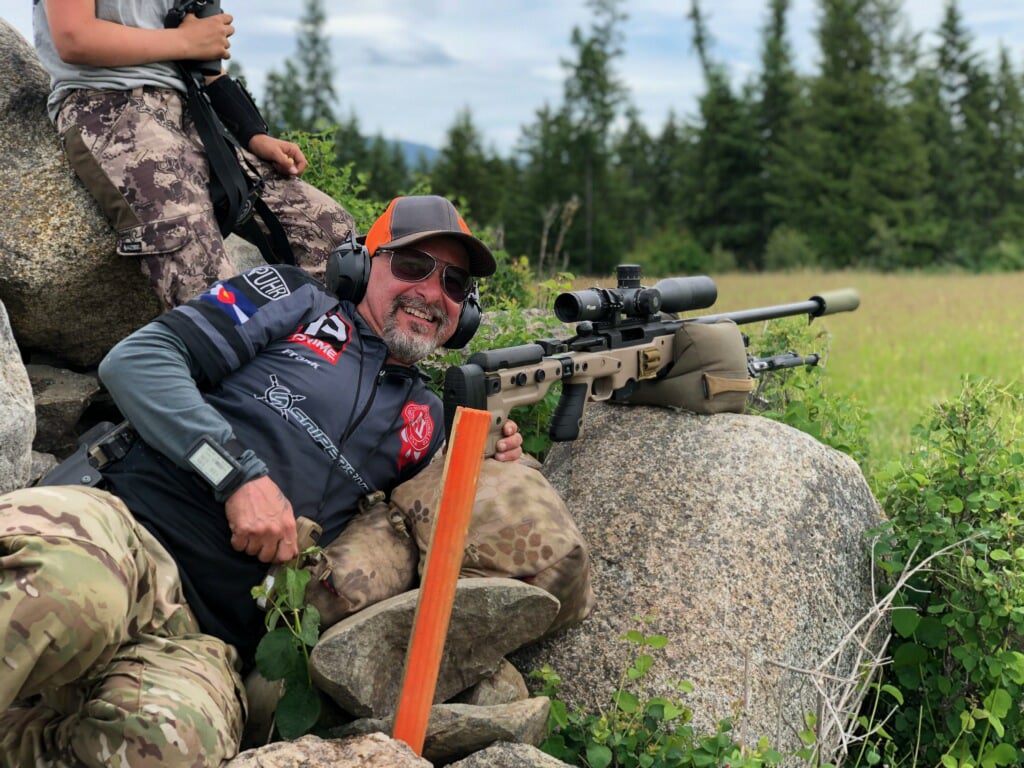The Invisible Barrier to Consistency

The ability to perform on command creates anxiety. Even your dog experiences this in a retrieving scenario; the anticipation of your command that will cause her to explode from under your feet to retrieve that ball you’ve thrown. She is thinking, “What if he doesn’t give the command this time? What if I cannot find that ball.?” Her anxiety is evident in her intense focus on the area where the ball landed and her muscles are straining to leap, to retrieve and to perform… on command.
And here YOU are, four rounds into a perfect one-hole group. You cycle the bolt and in comes the creep of that anxious question; “Can I do that just one more time? On command? I can… but… then again, I may not be able to.” You press the trigger hastily. Mostly to eliminate that thought instead of relaxing, breathing, and going through your process again. There’s the hole. Did your muscles tense just enough to push the strike of the round just outside the group or did you hold your breath in anticipation? Because, as expected, the shot landed just outside the group. You panicked.
You’ve experienced performance panic, and it ruins the placement of many an arrow on a bow target, many a dart on a dart board, and they’ve even engineered a blue or yellow pill for you to take on that first date! Because you want to perform.
In precision rifle training, you’ve got an extreme variety of shooters, from the first-course-can’t-spell-fundamentals shooter to the law enforcement professional, side by side on the same line and they are yearning to focus hard enough to give the instructor exactly what he wants; a steady breathing cycle and “Press, Break, Freeze.”
In precision rifle competition you have the same, unseasoned to seasoned, performing strings of fire – on the clock. Time is a panic inducer because… It’s running out.
Result Orientation vs. Process Orientation

Many shooters are result-oriented, and for them the result may not be an accurate impact achieved by pressing the START button (trigger). Instead, they press the STOP button, exhale, recover from recoil and look for the miss. By inserting performance panic, the shooter overrides process and in our case proper processes learned through thousands of “snaps” and actual rounds fired. It is replaced with the “let’s just get through this. How bad can it be?” shot.
This is the result not only of give the instructor what he wants, but “Oh, my God, the clock is ticking and he thinks I’m taking forever.” The competitor experiences performance panic when time is running out; “I’ve got to get this done quickly regardless of the outcome.” HOW BAD CAN IT BE?
So as shooters, we are defining performance panic as the urge to get the task ( firing the shot ) done, even if we must accept an unfavorable outcome. Ammunition is a recurring expense, and to accept an unfavorable outcome time after time, hoping that one day the outcome will change and all shots will be hits… well… that’s the definition of insanity. Expensive insanity.
The process-oriented shooter, on the other hand, focuses all of the attention to the firing process. The same firing process learned through the Fundamentals and executed thousands of times. Then the shooter recreates that process exactly, each and every time. This shooter, so disciplined, creates a five shot group. Each shot the same process as the one that preceded it. On the other hand, the result-oriented shooter creates five one-shot groups. Each process unique and each shot unique.
Anticipation of Recoil

Our mind does not like the thought of and explosion taking place just inches from our most important organ; the brain. Nor does it like the jolt we receive from recoil punching us in the shoulder or the disruption of our focus when our sight picture is broken for those thousandths of a second. We commonly refer to recoil anticipation as a flinch, which falls into the category of, “Let’s just get through this, regardless of outcome” panic. The shooter has replaced the process of Press, Break, Freeze with TENSE UP, CLOSE YOUR EYES, PULL AND HOLD ON!
I mean, how bad can the outcome be? Well, if you are a consistent flincher, it may be pretty bad, and certainly not as good as if you were not a flincher at all. Like stealing, if you got caught flinching, you cannot convince it’s the first time you’ve ever done it.
Eliminate the Barrier

The first step is to learn the process through instruction in sound Fundamentals and apply them to the shooting process. To clone each shot as if it were the last one, just as we attempt to clone ammunition when reloading. Because errors are cumulative and we must eliminate error.
Think only about the process, and believe, through relentless perfect practice, that the outcome will be consistent.
Use consistent pressure, sight picture, and firing process and duplicate each of those attributes over and over.
Flinchers, train the flinch out by not loading your own mags for a while and let your shooting buddy load a dummy round here and there. If anything moves other than your trigger finger to hold the trigger to the rear, you are a flincher. You are panicking. It can only be broken with thousands of presses with no anticipation.
Dry fire at every opportunity and before every untimed string of fire.
In precision rifle, there is no blue or yellow pill for performance panic.
Marc Taylor
May 22, 2020

